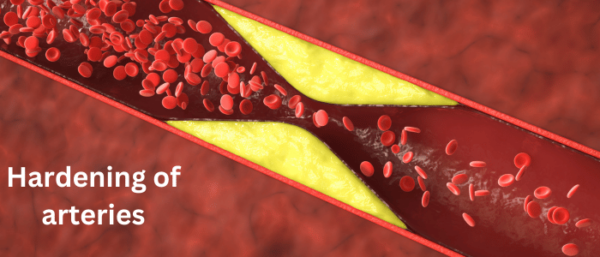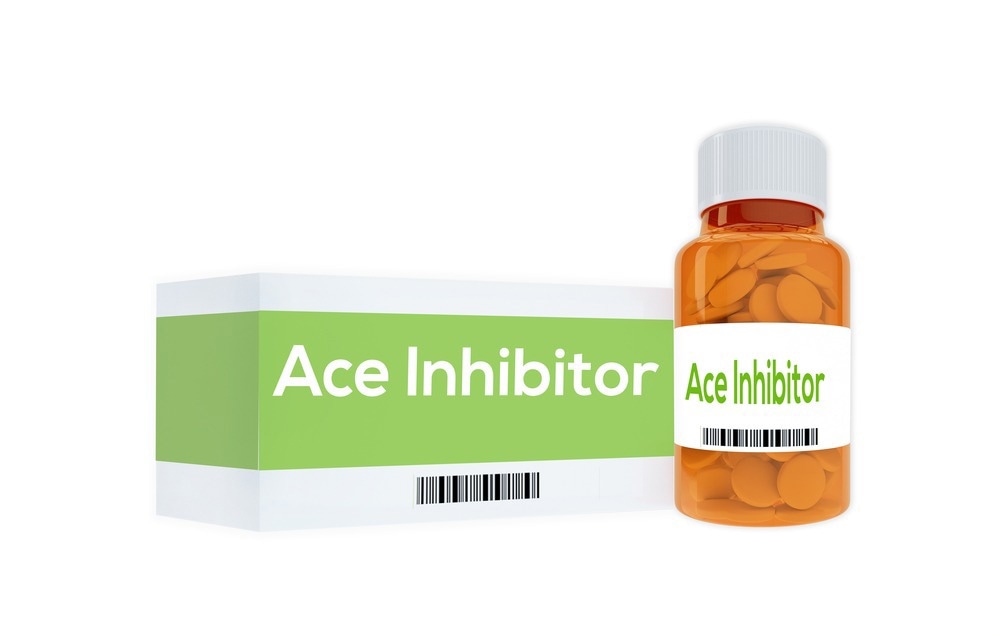Mechanism of blood pressure control in your body and how drugs called ACE inhibitors are used to counteract high blood pressure. – By Dr Harold Gunatillake

Written by Dr Harold Gunatillake FRCS
Your body has a system to keep your blood vessels narrowed, increase salt retention and water, i.e., tissue perfusion balance, and maintain blood pressure in emergencies such as traumatic bleeding and other times.
For instance, if you lose blood from trauma, this mechanism starts working straight away in your body. This is the inbuilt mechanism to survive through the ReninAngiotensin-Aldosterone System or RAAS.
The renin-angiotensin system, or renin-angiotensin-aldosterone system, is a hormone system that regulates blood pressure, fluid and electrolyte balance, and systemic vascular resistance.

It is natural for blood pressure to rise with age due to the overreaction of the RAAS system and the natural process of thickening, hardening, and narrowing the lumen of the arteries.
This is how you develop high blood pressure with age due to the increased pumping force used by the heart to counteract the peripheral resistance of the arteries and force blood through.
Counteracting the RAAS system with medication
You could count against the RAAS system through medication and lower the blood pressure to the normal range when treating high blood pressure.
This is an excellent finding by our researchers, saving so many deaths from situations because of increased blood pressure, such as heart failure, stroke, clot formation, amputation of limbs, etc. Such drugs that counteract the RAAS are the ACE inhibitors and ARB, and your doctor would have put you on one of them if you have high blood pressure over the age of 60 years.

Thanks to the researchers, we have drugs called ACE inhibitors, or angiotensin-converting enzyme inhibitors and angiotensin receptor blockers (ARBs), and other drugs to play a vital role in various  homeostatic mechanisms, such as blood pressure control and tissue perfusion balance.
homeostatic mechanisms, such as blood pressure control and tissue perfusion balance.
Today, we discuss Angiotensin-converting enzyme inhibitors or ACE inhibitor drugs used to maintain a normal blood pressure range.
These drugs are differentially used in elderly patients with hypertension, and your doctor would have prescribed them if you are over 60 years.
High blood pressure should not be ignored in older adults because it is associated with cerebrovascular—cardiovascular, renal issues, and mortality.
Blood pressure must be reduced according to the needs of the patients based on age, race, the severity of hypertension, and coexisting medical problems. Co-existing medical conditions (asthma, diabetes mellitus, heart failure, renal failure, gout, coronary artery disease, hyperlipidemia, and peripheral vascular disease) are significant determinants for selecting antihypertensive medications.
For example, your doctor will not prescribe beta-blockers for high blood pressure and lower your pulse rate if you have asthma and other respiratory diseases.
Angiotensin-converting enzyme (ACE) inhibitors are not only productive antihypertensive agents in the elderly but also appear promising in counteracting some of the cardiovascular and renal consequences of hypertension. They are well tolerated and have a relatively low incidence of adverse effects. ACE inhibitors possess ancillary characteristics that are potentially beneficial for many elderly patients, including reduced left ventricular mass, lack of metabolic and lipid disturbances, no adverse CNS effects, no risk of induction of heart failure, and a low risk of orthostatic hypotension.
So, that would be the first line of drugs doctors will prescribe for older people with high blood pressure.
Since ACE inhibitors may improve perfusion to the heart, kidney, and brain, they are well worth considering for treating elderly patients with hypertensive target organ damage, especially in patients with heart failure and diabetic patients with early nephropathy.
What is Angiotensin-1?
Let’s talk about Angiotensin first and proceed to drugs that block it later in the discussion to reduce your high blood pressure. Angiotensin is a peptide hormone that causes narrowing orvasoconstriction of arteries, causing increased blood pressure. It is part of the renin-angiotensin system that regulates blood pressure.
What is a renin-angiotensin system, or the RAS, called?
It is also called renin-angiotensin-aldosterone system or RAAS. This system is a critical regulator of blood pressure, including blood volume and electrolyte balance. Normally renin is secreted by special cells in the kidneys if blood pressure is too low, thus activating angiotensin 11 to increase blood
pressure and vascular resistance.
Angiotensin 11 is derived from Angiotensin 1 by an enzyme secreted in the walls of blood vessels called angiotensin-converting enzymes. When your blood pressure drops too low, or your body doesn’t have
enough salt, renin gets sent into your bloodstream. That triggers a chain reaction that creates an angiotensin hormone and signals your adrenal glands to release another hormone called aldosterone.
Angiotensin also stimulates the release of aldosterone from theadrenal gland that sits on each kidney like a cap, promoting sodium retention by the kidneys.
In short, by narrowing arteries and retaining salt, angiotensin helps maintain the normal range of blood pressure and fluid balance. This is a natural event when people are traumatized to minimize the rate of bleeding for survival.
The precursor of angiotensin is a protein called angiotensinogen produced in the liver. Angiotensinogen is broken up by renin, an enzyme produced in the kidneys to form angiotensin 1. As the blood passes through the lungs and kidneys, it is further metabolized to produce angiotensin 11 by the angiotensin-converting enzyme.
The angiotensin-converting enzyme is produced by the vascular endothelium or inner lining cells to help regulate blood pressure. It catalysis- accelerating the conversion of angiotensin 1, an inactive protein, to angiotensin 11. So, let’s summarize what we have learned so far. Liver produces angiotensinogen
This is broken down to Angiotensin 1 by the hormone renin secreted in the kidneys. The angiotensin converting hormones secreted in the inner lining of arteries convert angiotensin one into angiotensin 11. Angiotensin 11 raises blood pressure by several actions, including vasoconstriction or narrowing blood vessels.
Now let us talk about angiotensin-converting enzyme inhibitors. These are drugs that cause dilation or relaxation of blood vessels by inhibiting the production of angiotensin 11. These are drugs used to treat high blood pressure, heart problems, and other conditions. As I said earlier, ACE inhibitors or angiotensin-converting enzyme inhibitors work by primarily relaxing the blood vessels; on the other hand, angiotensin formed by breaking down of angiotensinogen produced in the liver causes narrowing or vasoconstriction of blood vessels.
So ACE inhibitors are used in the treatment of high blood pressure. Those ACE inhibitors come in various labels, such as Capoten, Monopril, enalaprilat, Zestril, Lotensin, Accupril, and lisinopril. Your
doctor would have prescribed one of those drugs you take for high blood pressure.
ACE inhibitors act by stopping the action of an enzyme called angiotensin-converting enzymes, described earlier as produced by the inner lining of blood vessels.
ACE inhibitors have side effects you should know if your doctor has prescribed them for you for high blood pressure. They are a dry cough, low blood pressure, fatigue, dizziness, headache, loss of taste, and skin rashes.
If you get any of these side effects, remember they may be due to your ACE inhibitors. There are more severe side effects too: Swelling of the area beneath the skin. Increased potassium levels in the blood Renal failure if you have narrowing of renal arteries They may be harmful to both mother and the baby if taken during pregnancy.
And lastly, chest pain and pancreas gland swelling. Please see your doctor if you get any of these severe side effects. So, remember, if your doctor has prescribed an ACE inhibitor drug, this article helps you to understand how it works and lowers blood pressure, for you.
Disclaimer:
The information contained in this article is for general information purposes only, and whilst the author will endeavour to keep the information up to date and correct, eLanka makes no representations or warranties of any kind, express or implied, about the completeness, accuracy, reliability, suitability or availability with respect to the eLanka website or the information, products, services, or related graphics contained in this article for any purpose. Any reliance you place on such information is therefore strictly at your own risk. In other words, eLanka In no event will we be liable for any loss or damage including without limitation, indirect or consequential loss or damage, or any loss or damage whatsoever arising from loss of data or profits arising out of, or in connection with, the use of this website / article. Also please note that through this website / web page articles you are able to link to other websites which are not under the control of eLanka and therefore we have no control over the nature, content and availability of those sites. The inclusion of any links does not necessarily imply a recommendation or endorse the views expressed within them.







